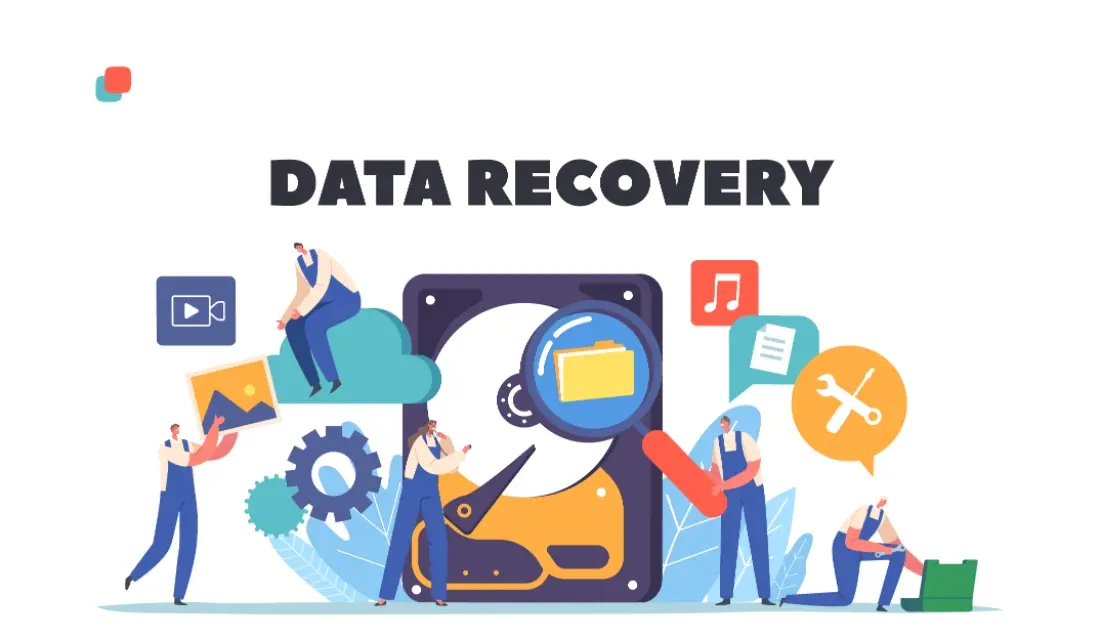
31 May Data Recovery Service in Ft. Lauderdale: What You Need to Know Before it’s Too Late
Losing important data can be a nightmare, especially if you’re running a business or working on a project with critical information. Unfortunately, data loss is a common occurrence, and it can happen due to various reasons, such as hardware failure, software corruption, human error, or even natural disasters. That’s why it’s important to have a reliable data recovery plan in place. If you’re in Ft. Lauderdale and looking for data recovery services, you need to know what to look for before it’s too late. In this article, we’ll explore the essential things you need to know about data recovery in Ft. Lauderdale, including the common causes of data loss, the importance of having a data backup plan, and what to consider when choosing a data recovery provider. By the end of this article, you’ll be equipped with the knowledge you have to protect your data and recover it in case of a disaster.
Common Causes of Data Loss
Data loss can happen at any time, and it’s crucial to understand the common causes to prevent it from happening. Hardware failure is one of the most common causes of data loss. A hard drive can fail due to power surges, overheating, or mechanical problems. When a hard drive fails, you might not be able to access your data, and you need to seek professional help to recover it. Another common cause of data loss is software corruption, which can occur due to viruses, malware, or system crashes. In this case, you might still be able to access your data, but it might be corrupted and unusable.
Human error is another common cause of data loss. Accidentally deleting important files, formatting the wrong drive, or overwriting files can all lead to data loss. It’s essential to double-check before performing any action that might lead to data loss. Finally, natural disasters like floods, fires, or earthquakes can destroy hardware and lead to data loss. In such cases, it’s essential to have a data backup plan in place to recover your data.
Importance of Having a Data Recovery Plan
Having a data recovery plan is crucial to ensure that you can recover your data in case of a disaster. A data recovery plan involves backing up your data regularly to an external hard drive, cloud storage, or a remote server. This way, even if your hardware fails, you’ll still have a copy of your data that you can access. It’s essential to have a backup plan that suits your needs and budget. For example, if you’re running a business, you might need a more robust backup plan that allows you to access your data from different locations.
Another crucial aspect of having a data recovery plan is testing it regularly. You would rather not find out that your backup plan is not working when it’s too late. Regular testing ensures that your backup plan is up-to-date, and you can recover your data if needed. Finally, having a data recovery plan provides peace of mind, knowing that your data is safe and can be recovered in case of a disaster.
It is always necessary to have a Data Recovery Plan to access valuable data after a technical failure or failure of a server or computer. Call us today at (954) 524 9002, Or send a request for a consultation in the form below.
Choosing a Data Recovery Service Provider
If you don’t have a data backup plan, or your data backup plan fails, you need to seek professional help to recover your data. Choosing a data recovery service provider can be challenging, especially if you don’t know what to look for. Here are some factors to consider when choosing a data recovery service provider:
- Experience: Look for a data recovery service provider with years of experience in the industry.
- Experienced providers are more likely to have the expertise and equipment needed to recover your data.
- Reputation: Check the provider’s reputation online by reading reviews and testimonials from previous clients. A reputable provider is more likely to provide quality services and customer support.
- Cost: Data recovery services can be expensive, so it’s essential to select a provider that offers competitive pricing and transparent pricing policies.
- Data privacy: Ensure that the provider has strict data privacy policies to protect your data from unauthorized access or theft.
- Turnaround time: Check the provider’s turnaround time for data recovery. You want a provider that can recover your data as quickly as possible to minimize downtime.
Questions to Ask Before Hiring a Data Recovery Service
Before hiring a data recovery service provider it’s essential to ask the right questions to ensure that you’re getting the best services possible. Here are some questions to ask:
- What is your success rate for data recovery?
- What is your pricing policy, and are there any hidden costs?
- What is your turnaround time for data recovery?
- What type of equipment and software do you use for data recovery?
- What is your data privacy policy, and how do you ensure the confidentiality of my data?
- Do you provide after-service support, and for how long?
- Do you have any certifications or accreditations in data recovery?
The Data Recovery Process – What to Expect
The data recovery process involves several steps, depending on the cause of data loss and the type of hardware. Here is a general overview of the data recovery process:
- Evaluation: The provider evaluates the damaged hardware or corrupted software to determine the cause of data loss and the feasibility of data recovery.
- Data extraction: If the hardware or software is recoverable, the provider extracts the data using specialized equipment and software.
- Data repair: If the data is corrupted, the provider repairs it using specialized software.
- Data transfer: Once the data is recovered and repaired, the provider transfers it to a new storage device.
Testing: The provider tests the recovered data to ensure that it’s complete and usable.
The data recovery process can take many days or even weeks, depending on the complexity of the data loss and the amount of data to be recovered.
Preventative Measures to Avoid Data Loss
While having a data recovery plan in place is crucial, it’s also essential to take preventative measures to avoid data loss. Here are some preventative measures you can take:
Back up your data regularly: As mentioned earlier, backing up your data regularly is crucial to ensure that you can recover it in case of a disaster.
- Back up your data regularly: As mentioned earlier, backing up your data regularly is crucial to ensure that you can recover it in case of a disaster.
- Use antivirus and anti-malware software: Protect your hardware from viruses and malware by using reliable antivirus and anti-malware software.
- Update software and hardware regularly: Keep your software and hardware up to date to prevent system crashes and hardware failures.
- rain employees on data security: Human error is a common cause of data loss, so it’s essential to train employees on data security best practices.
- Use surge protectors: Protect your hardware from power surges by using surge protectors.
DIY Data Recovery – When to Attempt and When to Seek Professional Help
While DIY data recovery is possible, it’s not always recommended. Attempting to recover your data yourself can lead to further damage and make data recovery impossible. Here are some situations when you can attempt DIY data recovery:
- Accidentally deleted files: If you accidentally deleted files, you can use data recovery software to recover them.
- Corrupted files: If your files are corrupted, you can use specialized software to repair them.
- Non-mechanical hardware failure: If the hardware failure is not mechanical, you can attempt to recover your data using DIY methods.
However, if the hardware is physically damaged, or the data is critical, it’s recommended to seek professional help to avoid further damage and increase the chances of data recovery.
Cost of Data Recovery Services
Data recovery services can be expensive, and the cost depends on several factors, including the severity of data loss, the amount of data to be recovered, and the type of hardware. The cost can range from a few hundred dollars to several thousand dollars. It’s essential to choose a data recovery service provider with transparent pricing policies and competitive pricing. Avoid providers with hidden costs or those that charge for evaluation or consultation.
Conclusion and Final Thoughts
Data loss can be devastating, but having a data recovery plan in place can help you recover your data in case of a disaster. It’s essential to understand the common causes of data loss, the importance of having a data backup plan, and what to consider when selecting a data recovery service provider. Asking the right questions and understanding the data recovery process can help you decide the appropriate provider and ensure that your data is safe. Finally, taking preventative measures and knowing when to attempt DIY data recovery can help you avoid data loss and minimize downtime.
Downtown Computer Services will help you quickly restore access to important data!
Call us today at (954) 524 9002, Or send a request for a consultation in the form below.
Check out other relevant news
- How Easy-to-Use Hacking Tools Are Fueling Cybercrime
- Cryptocurrency Security for Small Businesses: Protecting Your Wallet
- The Infostealer Epidemic: Protecting Your Business from the Latest Wave of Cyberattacks
- The Identity Crisis: How Compromised Credentials Can Cripple Your Business
- Beyond the Brick and Mortar: Building Your Online Storefront with Digital Marketing
